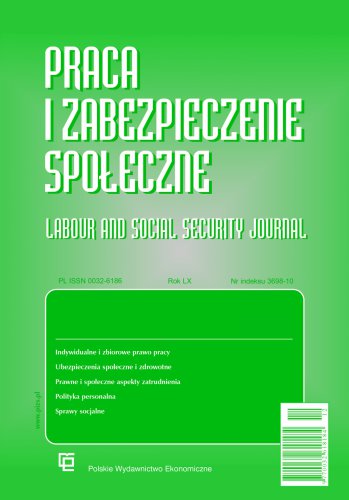Labour and Social Security Journal 2/2024
ISSN: 0032-6186
Pages: 60
Publication date: 2024
Place publication: Warszawa
Binding: paperback
Format: A4
Publication date: 2024
Place publication: Warszawa
Binding: paperback
Format: A4
DOI: 10.33226/0032-6186.2024.2.2
JEL: K31, K22
DOI: 10.33226/0032-6186.2024.2.3
JEL: K31
DOI: 10.33226/0032-6186.2024.2.4
JEL: K31, K23
DOI: 10.33226/0032-6186.2024.2.5
JEL: K490
DOI: 10.33226/0032-6186.2024.2.6
JEL: K31, K33
DOI: 10.33226/0032-6186.2024.2.7
JEL: K31
DOI: 10.33226/0032-6186.2024.2.8
JEL: K31
DOI: 10.33226/0032-6186.2024.2.9
DOI: 10.33226/0032-6186.2024.2.10
JEL: K31
| Odbiór osobisty | 0 € |
| Inpost Paczkomaty | 4 € |
| Kurier Inpost | 4 € |
| Kurier FedEX | 4 € |
| Free delivery in Reader's Club | from 47 € |

